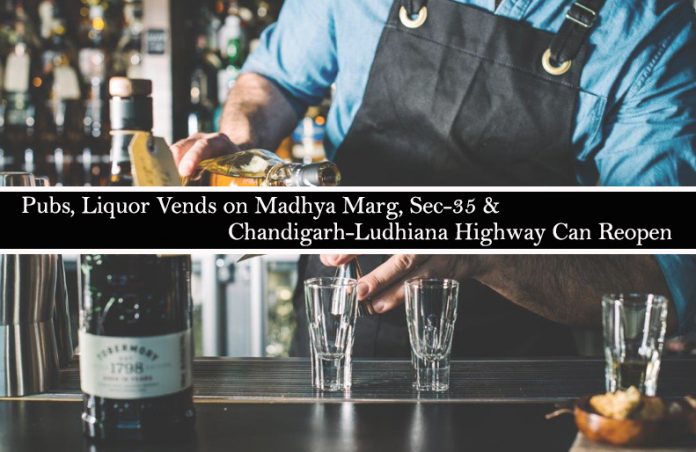Bringing miles long smiles on the hoteliers, pub, restaurant and liquor vends owners, Supreme Court of India dismissed the petition that challenged the Chandigarh administration’s move of denotifying 12 highways running through the city.
Pubs, Liquor Vends on Madhya Marg, Sec-35 & Chandigarh-Ludhiana Highway Can Reopen.
The Chandigarh based NGO ArriveSafe had challenged the Chandigarh administration move on the rationale that de-notifying highways in Chandigarh amounted to circumventing Supreme Court’s order of banning liquor serving within 500 meters of state and national highways. First it appealed before Punjab & Haryana high court and when it was dismissed, the NGO challenged the judgment in Supreme Court.
To this the three-judge bench said, “If it (administration) had the intention of regularising all the liquor vends which went (consequent to top court order) then it would have denotified all the roads, but it did not do that.”
The court also added, “It (Chandigarh administration) did a classification. If it is a fast moving traffic area, then did not touch it. (But) within the city they touched it (denotified it)…Had Chandigarh administration de-notified roads beyond the municipal limits it would have been a fraud on our order. As long as a road is a highway our order on liquor ban will apply, the moment it ceases to be a highway the order will not apply.”
Not just for Chandigarh, the Supreme Court order is good news for other state governments like Punjab who have similarly de-notified roads.
Additionally, the apex court also hinted that similar orders can be passed for the states of Kerala, Arunachal Pradesh, Andaman and Nicobar Islands and Uttarakhand who are before the Supreme Court. Court has agreed to hear these petitions on July 12th.
Hoteliers’ Petitions Dismissed
However, the court dismissed the petitions filed by club and hotel owners with their establishments located on the highways. They had sought concessions from the court saying that, “Orders were originally confined to only liquor vends. Hotels and clubs host foreigners, organise seminars and conferences and in the face of this ban economic loss is being caused to these establishments.”
BACKGROUND OF THE CASE
December 15, 2016: The Supreme Court banned the sale of liquor within 500 metres of state and national highways, effective from April 1, 2017.
April 1, 2017: The judgment became effective, closing down liquor vends, pubs and bars on state and national highways across the nation.↵
Arrive Safe moved to Punjab & Haryana high court challenging Chandigarh administration notification.
July 11, 2017: Supreme Court of India dismissed the petition that challenged the Chandigarh administration’s move of denotifying 12 highways running through the city, opening window for states that have denotified the roads in the city.
Source: Business Standard & Hindustan Times
Image Credits: Google Images






















